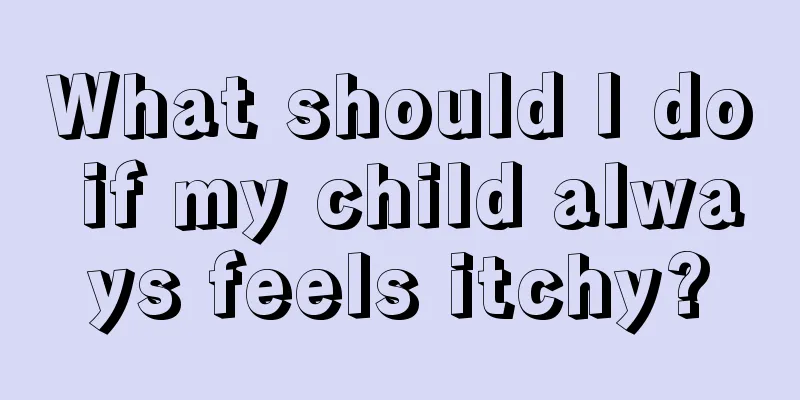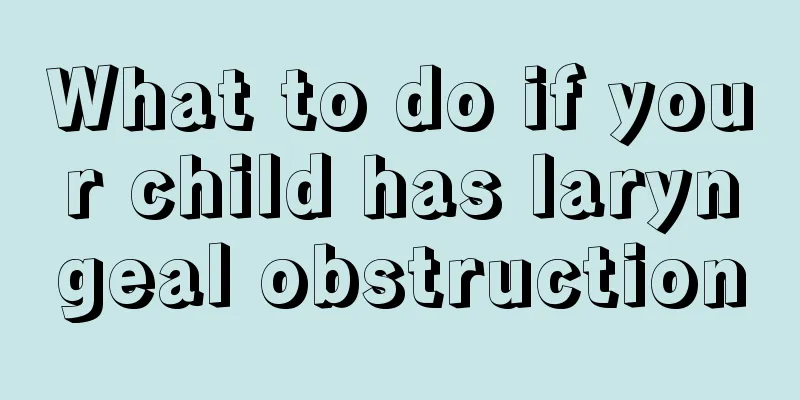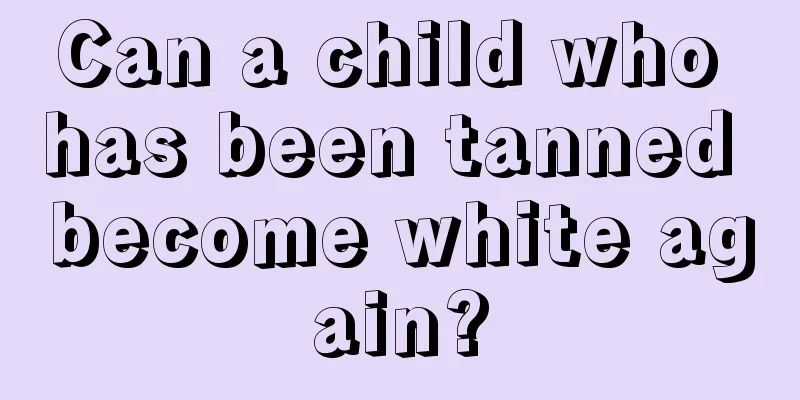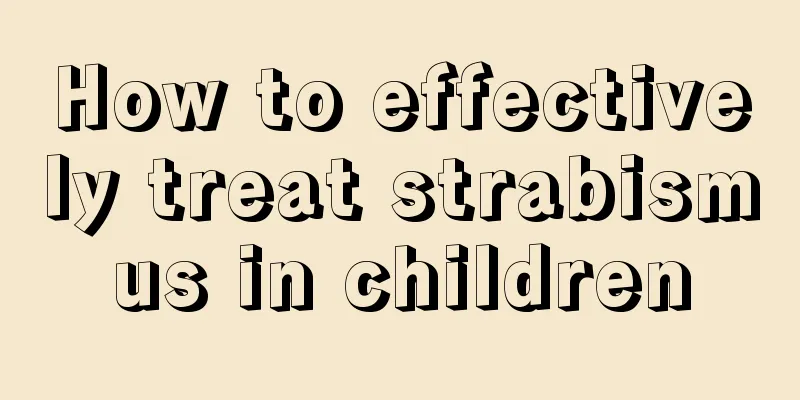What should I do if my child has a fever but does not sweat?
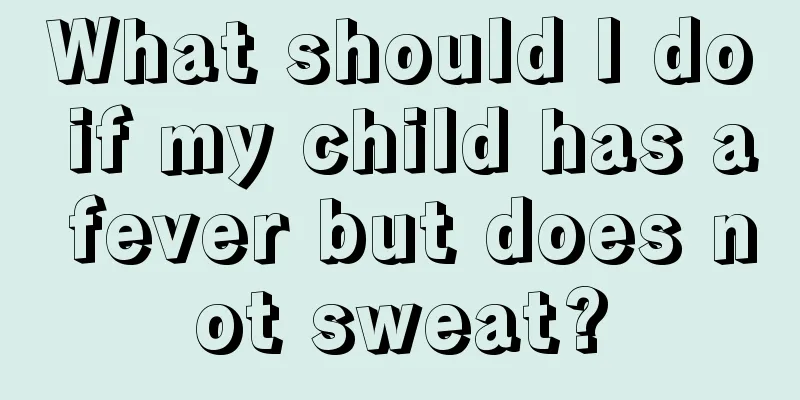
|
Many people believe that if you have a fever, you must sweat so that you will get better. However, for children, it is actually best not to sweat when they have a fever. Because children's heat dissipation mechanism is not yet fully developed. Today, I will introduce to you what to do if a child has a fever but does not sweat. You can learn about it. Because children's heat dissipation mechanism is not perfect, if they are covered too much when they have a fever, the heat will not dissipate, making the temperature higher, and in severe cases, dehydration and fainting may occur. If parents find that their children have a fever, they should initially use certain physical methods to cool them down, such as reducing the amount of clothing and bedding for the children, wiping the children's bodies with warm water at about 37 degrees Celsius, and if it is summer, opening windows and turning on fans for ventilation, but be careful not to blow directly at the children. If the temperature cannot be reduced effectively, you should go to the hospital immediately. With the cooperation of the doctor, first find out the cause of the child's fever and then carry out targeted treatment. The treatment methods for babies' fevers are actually different depending on the temperature. Now parents will know more clearly how to provide the most comfortable care for their babies if they have a fever. When the body temperature is 37 to 38 degrees Celsius: No need to rush to reduce the fever Fever itself helps kill bacteria and enhance immunity, so there is no need to rush to reduce the fever when it is not too high. Blindly reducing fever often causes many adverse reactions. Due to the rapid reduction of fever and excessive sweating, it is easy to cause collapse and circulatory system problems. When the body temperature is 38 to 38.5℃: bathe or soak in warm water, drink plenty of water Undress your baby, rub his whole body with a towel and warm water (around 37°C) or give him a bath. This will dilate the blood vessels in his skin and dissipate body heat. In addition, when water vapor evaporates from the body surface, it will also absorb body heat. Take a bath for about 10 to 15 minutes each time, about once every 4 to 6 hours. Giving your baby more water can help him sweat. In addition, water has the function of regulating temperature, which can lower body temperature and replenish water lost in the body. When the body temperature is above 38.5℃: Consider using antipyretics Generally, antipyretics should be considered when the baby's body temperature is above 38.5℃, and there must be a 4 to 6 hour interval between each dose. Commonly used antipyretics include liquids, tablets, suppositories and injections. Liquid medicine: milder and safer. The most commonly used is syrup containing paracetamol, such as children's Motrin syrup, children's Baifuning drops, etc. Tablets: Since it is difficult to feed medicine to babies, this type of antipyretic medicine is rarely used and most of them have been replaced by various antipyretic syrups. The above is all I want to share with you today. I hope my sharing will be helpful to you. The editor reminds all mothers: Because children have relatively poor physical fitness and resistance, they are very easy to catch colds and fevers, so mothers should pay more attention to their babies' physical condition and seek timely treatment if they feel unwell. |
<<: What should I do if my baby always bites his lower lip?
>>: Why does the baby's nose turn blue and related suggestions
Recommend
What to eat when a two-year-old has a cough
Children's coughing is a situation that many ...
Review the pros and cons of early childhood education
Nowadays, many children are only children and are...
How to make meatballs for one-year-old baby
Babies who are too young, such as those around on...
Scar repair methods for children
What are the precautions? This is directly relate...
My baby's nose is bleeding all the time.
If parents find that their baby's nose has be...
Three-year-old baby convulsions
The baby's body is very fragile and can be ea...
7 kinds of fruits for baby's health
Fruit is an indispensable food in the baby's ...
What should children eat to grow taller?
Most parents want their children to have a tall s...
What causes arrhythmia in children?
Some parents may encounter the phenomenon of chil...
Can a hernia in a child heal on its own?
In life, the probability of children and the elde...
How to potty train your baby
It is a very long process for a baby to grow up f...
What should I pay attention to when doing MRI on children?
Regarding the operation of MRI surgery, I believe...
What should I do if my child has a fever after being frightened?
For children, since they have been exposed to ver...
Height and weight standard for three and a half year old baby
Babies need to be vaccinated regularly for a long...
Baby Poop Color
Some of the diseases of adults can be observed th...
